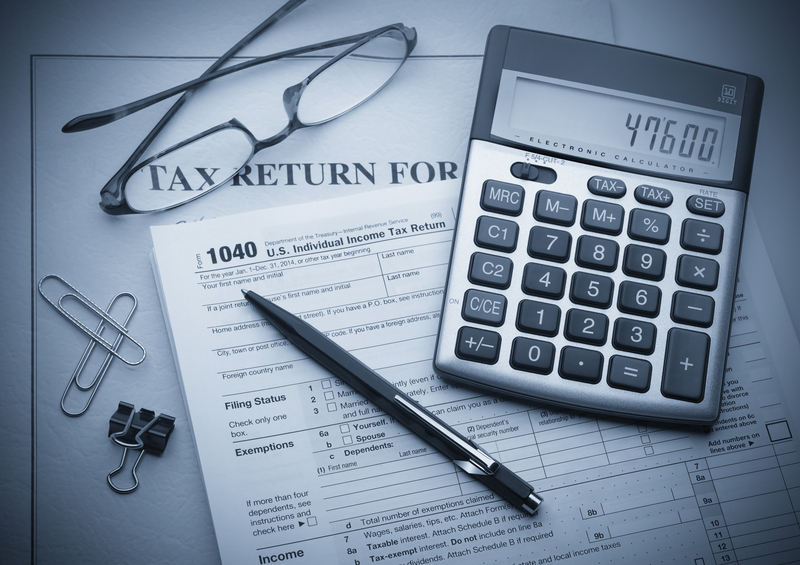Best Practices for Storing an Unused Freezer
Posted on 25/05/2025
Best Practices for Storing an Unused Freezer
If you have an unused freezer, whether it's a spare chest freezer, an old upright model, or a secondary deep freeze, knowing how to store it properly is essential. Storing a freezer correctly not only preserves its longevity but also prevents damage, unpleasant odors, and potential energy issues if you plan to use it again in the future. In this comprehensive guide, we'll walk you through the best practices for storing an unused freezer and answer common questions about freezer maintenance and storage.

Why Proper Storage of Your Unused Freezer Matters
Before diving into techniques and tips, it's important to understand why storing an unused freezer properly is crucial:
- Prevents mold, mildew, and unpleasant odors: A neglected freezer can develop musty smells, mold, or even rust.
- Protects mechanical and electrical components: Improper storage can damage crucial internal parts.
- Improves energy efficiency: Preparing your freezer for storage ensures it will operate efficiently later on.
- Maximizes appliance lifespan: Avoid costly repairs or premature replacement by storing your freezer the right way.
Can a Freezer Be Stored Unplugged?
Yes, a freezer can be stored unplugged, but certain precautions must be taken to avoid moisture buildup, bad odors, and damage to its internal components. When not in use, always unplug the freezer from the power source and follow the steps below to ensure optimal storage.
Step-by-Step Guide: How to Store an Unused Freezer
1. Clean Out the Freezer Thoroughly
Begin by emptying the freezer completely--it's crucial that no food, ice, or debris remains inside, as these can rot and cause foul odors or bacterial growth.
- Remove all shelves, drawers, baskets, and trays. Wash them separately with warm, soapy water.
- Wipe down the interior walls, floor, and ceiling of the freezer using a mild detergent and a soft cloth or sponge.
- For stubborn stains or odors, use a mixture of baking soda and water.
- Rinse with clean water and dry all components thoroughly.
2. Defrost the Freezer Completely
If your freezer is a manual-defrost model, it's important to remove all ice buildup before storage. If left, ice can melt and create water damage or mold.
- Unplug the freezer and leave the door open to allow the ice to melt naturally.
- Place towels at the base to soak up water as the ice thaws.
- Wipe the inside with a clean, dry cloth until it is completely moisture-free.
3. Dry the Freezer Completely
Moisture is the enemy when storing a freezer. It can create rust, promote bacterial growth, and make the interior smell bad over time.
- Allow the freezer to air out for at least 24 hours with the door open in a dry space.
- Use an absorbent towel or a hairdryer (on cool) to reach crevices and corners if necessary.
4. Neutralize Odors Before Storing
To prevent bad smells from developing inside your stored freezer, consider these tips:
- Place an open box of baking soda inside to absorb lingering odors.
- Alternatively, use activated charcoal or a bowl of dry coffee grounds.
- Odor-neutralizing gels or packets are also effective and can be purchased at appliance or home improvement stores.
5. Leave the Door Open or Ajar
The most critical step when storing an unused freezer is to keep its door slightly open. Closed doors can trap moisture and promote mold growth.
- Use a rolled-up towel, small foam block, or a specially made door prop to hold the door ajar by about 1-2 inches.
- Make sure children and pets cannot access the appliance when it's open for safety reasons.
6. Store the Freezer Upright
Whenever possible, store your unused freezer in an upright position. Laying it on its side or back can cause refrigerant and compressor oil to flow incorrectly, potentially damaging the unit.
- Ensure the freezer is on a flat, stable surface.
- Place a sheet or tarp underneath if storing on potentially damp ground, such as in a basement or garage.
7. Choose the Right Storage Location
Where you store your freezer is almost as important as how you prepare it. Consider these optimal storage locations for unused freezers:
- Clean, Dry, and Well-Ventilated Spaces: Garages, basements, or utility rooms work well if they're free from dampness and extreme temperature fluctuations.
- Avoid Direct Sunlight: Prolonged exposure to sunlight can warp plastic parts and age the appliance prematurely.
- Keep It Away from Heat Sources: Do not store your freezer near furnaces, water heaters, or other appliances that emit heat.
8. Protect the Exterior
Dust, humidity, and direct impact can degrade the outside of your freezer. Use these steps to prevent damage:
- Wipe down the exterior with a damp cloth before storage to remove dust and grime.
- Cover the freezer loosely with a breathable cloth or sheet to prevent dust buildup. Avoid airtight plastic covers, as they can trap moisture and cause rust or mold.
9. Periodic Checks and Maintenance
Don't just forget about your unused freezer once it's in storage. Scheduled checks can prevent issues before they become serious.
- Inspect the appliance every 1-2 months, looking for dust, signs of mold, or pest activity.
- Refresh baking soda or desiccant packs as needed.
- Make sure the door is still ajar and that no moisture has accumulated inside.
How Long Can You Store a Freezer Without Using It?
There is technically no hard limit on how long you can store an unused freezer if you follow the best practices outlined above. Many homeowners successfully store appliances for months or even years without issue. What matters most is ensuring the freezer stays clean, dry, ventilated, and free of pests and moisture.
If you plan to bring your freezer back into service after prolonged storage, allow it to sit upright for at least 4-6 hours (or according to the manufacturer's advice) before plugging in, especially if it was tilted during transport. This allows compressor oil to settle back into place and helps ensure safe operation.
Common Mistakes to Avoid When Storing an Unused Freezer
Proper freezer storage isn't difficult, but mistakes can lead to costly repairs or health hazards. Here are some pitfalls to steer clear of:
- Leaving moisture inside: Trapped moisture will foster mold, rust, and bad odors.
- Sealing the door completely: This can turn your appliance into a breeding ground for bacteria and mold.
- Storing in a damp or unventilated area: Results in corrosion and mechanical damage.
- Forgetting to check periodically: Out of sight doesn't mean out of maintenance duties! Pest intrusions, water leaks, or environmental changes can occur.
- Placing heavy objects on top: This can dent or damage the lid or sides, especially on chest freezers.
How to Prepare Your Freezer for Use After Storage
When it's time to recommission an unused freezer, some extra steps will help ensure it runs efficiently and safely:
- Clean out the interior: Even if you cleaned it before storage, wipe it down again to remove any dust or lingering odors.
- Check gaskets and seals: Door gaskets can warp or dry out over time. Check for cracks or damage that could impact efficiency.
- Inspect for pests or mold: Address any issues before plugging in the appliance.
- Let it sit upright: If the freezer was moved or tilted, wait several hours before plugging in.
- Plug it in and monitor temperature: Allow the freezer to reach the right temperature before adding food.
Extra Tips: Storing a Freezer in Specific Environments
Storing an Unused Freezer in a Garage
The garage is a popular storage spot, but it comes with special considerations:
- Temperature swings can be extreme. If your garage is uninsulated, try to store the freezer away from exterior walls and off the ground if possible.
- Watch for dampness during rainy seasons; a moisture barrier under the unit helps.
- Pests (rodents, insects) may be more common in garages--take care to check and seal openings.
Basement Storage Tips for Freezers
Basements often stay cool, which is ideal, but they can be humid or at risk for flooding:
- Consider a dehumidifier to reduce moisture levels.
- Elevate the appliance using blocks or shelving to protect from flooding.
- Check regularly for mildew or musty smells.
Outdoor or Shed Storage for Freezers
If you must store a freezer outside or in a shed, additional precautions are essential:
- Ensure the storage area is weatherproof; temperature extremes and rain can damage the appliance.
- Cover the freezer with a tarp (leaving gaps for airflow) and elevate it off the ground.
- Inspect for weather-related damage or pest intrusion at least once a month.

Frequently Asked Questions About Unused Freezer Storage
Should you store a freezer plugged in or unplugged?
*Always store your unused freezer unplugged*. Keeping it plugged in wastes electricity, poses safety hazards, and can cause unnecessary wear on components.
Is it okay to lay a freezer on its side for storage?
This is not recommended unless absolutely necessary. If you must transport it on its side, let it rest upright for at least 24 hours before plugging in to allow fluids to resettle.
Can I stack items on top of a stored freezer?
*It's best not to place heavy objects on your freezer*, as this can cause dents or damage to the lid and insulation.
Will storing a freezer for too long cause it to stop working?
Not if it is properly cleaned, dried, and stored according to the guidelines above. Many freezers function well after extended dormant periods if cared for appropriately.
Final Thoughts: The Importance of Properly Storing Your Freezer
Knowing the best practices for storing an unused freezer can save you time, money, and hassle. Whether you're storing it for the season or for a few years, the keys are cleanliness, dryness, good airflow, and periodic checks. Taking these extra steps will ensure your freezer is ready to serve you efficiently and safely when you need it again--keeping your investment protected for years to come!
Remember: An ounce of prevention is worth a pound of cure--a little effort now will keep your freezer in top condition when it's time to put it back into action.
Latest Posts
Master the Art of Stress-Free House Moving
Master the Art of Packing for a Seamless Move
Ultimate Guide: Cleaning Your Home Before Move-Out Day








